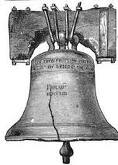By T. M. Moore
“Men of Athens, I perceive that in every way you are very religious."
--Acts 17:22
 In responding to the claim that science has disproved the Bible and Christianity, we don’t want to make the mistake of suiting up for war with science. That would be to fall into the trap of unbelieving reason and to forfeit the power of reason to help our friend consider whether or not his claim is really true.
In responding to the claim that science has disproved the Bible and Christianity, we don’t want to make the mistake of suiting up for war with science. That would be to fall into the trap of unbelieving reason and to forfeit the power of reason to help our friend consider whether or not his claim is really true.In fact, there is no conflict between science, rightly understood, and Christianity, rightly understood. Christians applaud and give thanks to God for the abundant, wonderful work which has come forth from the scientific community, especially over the past 200 years or so. We see in this the evidence of the image of God at work, even among those who do not know or acknowledge Him, to extend the steadfast love of God to men through the effective working of the scientific process.
Christians are all in favor of good science, and we encourage the members of the scientific community to continue their efforts to benefit humankind through their patient, diligent, creative, and fruitful labors.
No, we will not fall into the “religion vs. science” trap. We salute the good work of the scientific community and pray that they will continue to bring forth many benefits to the world.
However, we are concerned about the tendency of certain members of the scientific community to reach beyond their grasp and demand of their discipline more than it can deliver. By its very nature, as we have seen, science can say nothing definitive about the existence of realities other than material ones. For those who embrace science and evolution as the defining template for all of life, the spiritual realm – what or whether it is – is strictly out of bounds. Their methods cannot offer any conclusive determination concerning the reality of unseen, spiritual beings, places, or powers.
It is, therefore, bad science – and even worse theology – for scientists to conclude that God either does not exist or is irrelevant to human life. They simply are not equipped, using the methods of their discipline, to reach such a conclusion. In order to do so, they must rely on the methods of faith, and not the methods of science. And, as we shall continue to point out, their use of these methods is not only inconsistent, but borders on being dishonest.
In this part of our response we will take a twofold approach to demonstrating the inability of the scientific worldview to speak definitively about spiritual matters.
Science a form of faith
As many have pointed out – both Christians and non-Christians – the scientific endeavor necessarily involves elements of faith. A wide variety of beliefs forms the starting-point for the work of scientists. Certain things cannot be proven by the methods of science; rather, they must be assumed, taken by faith, and presupposed as true, without the benefit of any experimental justification.
Such foundational convictions are not incidental to the work of science, but foundational. They include, for example:
· The idea that everything that exists is the product of time, chance, and matter only;
· That human beings, like all other creatures in the cosmos, are ultimately beings of no lasting significance;
· That no such thing as unchanging or absolute truth exists;
· That one is able to draw conclusions about all creatures or functions in a class or universe on the basis of the observation of a sample of such creatures or functions only;
· That everything that exists is merely matter in one form or another;
· And that the universe is directed or superintended by mere chance.
It might be useful, in demonstrating the faith character of such ideas, to cast them into the form of a creed, such as the Apostles’ Creed. Such a creed might look something like this:
The Modernists’ Creed
I believe in Matter, the Indestructible Source,
Fount and Substance of the great Cosmos,
And in Chance, its sole correlative, our Governor,
which was conceived by nothing,
appeared from nothing,
was misunderstood and denied by frightened men,
was cast aside, dropped, and buried,
and descended into Ignorance.
Yet in the Enlightened Time it rose again
and ascended to prominence and rule once more,
being indivisibly bound to Matter the Indestructible Source.
In Time, Chance will judge and destroy all life and hope.
I believe in Holy Order,
the academy of science,
the brotherhood of man,
the impossibility of sin,
the destruction of the body,
and the coming age of cold and dark. Whatever.
As Dennis Overbye explained, writing in the April 26, 1993 issue of Time magazine, “Science is nothing if not a spiritual undertaking. The idea that nature forms some sort of coherent whole, a universe ruled by laws accessible to us, is a faith. The creation and end of the universe are theological notions, not astronomical ones” (“Who’s Afraid of the Big Bad Band?”). Bryan Appleyard is more succinct: “…science is our faith, and our age’s unique signature” (Understanding the Present, p. xiv).
Science is thus, we want to point out, a form of religion, and the reliability of religions other than the Christian faith is an objection we have previously addressed. Therefore to claim that science has disproved the Bible and Christianity is to assert that science, as a form of religion, provides a truer and more reliable framework of faith for making sense of our lives.
But is this really true?
Science as religion
The problem with the religion of science is that it’s not content to function on its own beliefs. Instead, it continually borrows beliefs from the Christian worldview in order to prop up its unworkable framework. For example:
Science accords a prominent place for chance, yet it believes in an orderly universe.
Science says life is meaningless and without significance, yet it acts as though human beings have a very important purpose and role to play in the cosmos.
Life is a matter of struggle and survival, but science exists, at least in part, to enable people to work together for better life for all.
Science says there are not final truths, yet that statement itself is a final truth, and raises the question of whether there might not be more final truths yet to be discovered.
Science says we can only know what we can prove by scientific methods, but science cannot even prove that statement by its own methods.
The religion of science professes one set of convictions, but it bases its work and achieves its success only because it operates on the basis of another, contrary set of convictions. Those convictions are borrowed from the Christian worldview, which formed the foundation and framework for the development of the scientific endeavor, and which continues to provide – though unacknowledged – the operating power for the scientific enterprise.
It should not be too difficult to demonstrate to the one who claims that science has disproved the Bible and Christianity that, as a matter of fact, exactly the opposite is true. Because the scientific endeavor cannot go forward without employing assumptions and beliefs which derive from the Christian worldview, the scientific endeavor in fact, powerfully demonstrates the truth of Christianity and the Bible.
For reflection or discussion
1. Have you ever thought of science as a body of beliefs? Do you think most people think of science this way? Why or why not?
2. In what ways does the “faith component” of science demonstrate the Biblical teaching about the image of God in human beings?
3. Why do you think it’s so easy for scientists to profess one set of beliefs and then to operate on the basis of precisely contrary beliefs? How does the Christian worldview account for this?
4. Why do we insist that, when someone claims that science disproves the Bible and Christianity, he is guilty both of bad science and worse theology?
5. Below, outline the response we want to make to someone who might say that science has disproved the Bible and Christianity.




















